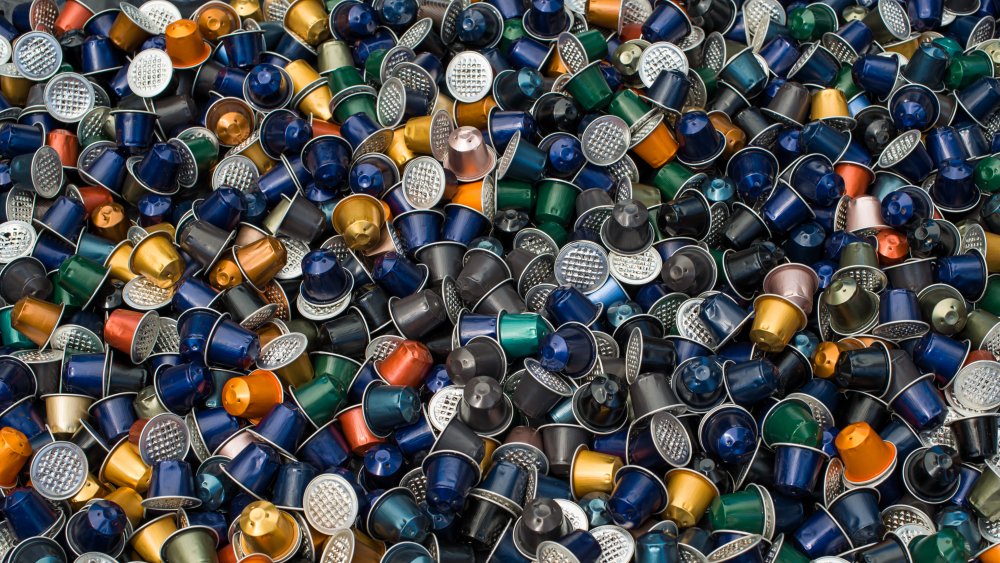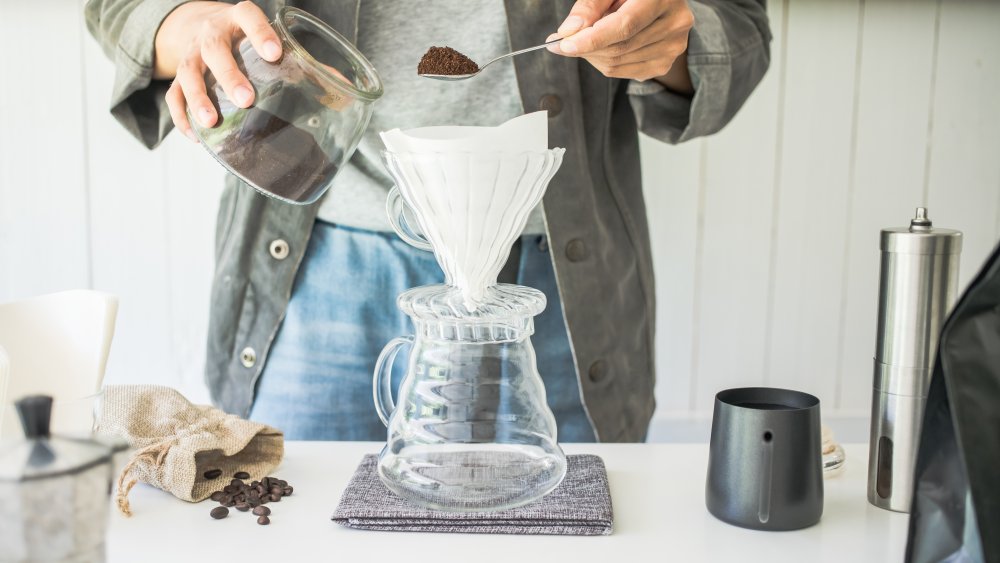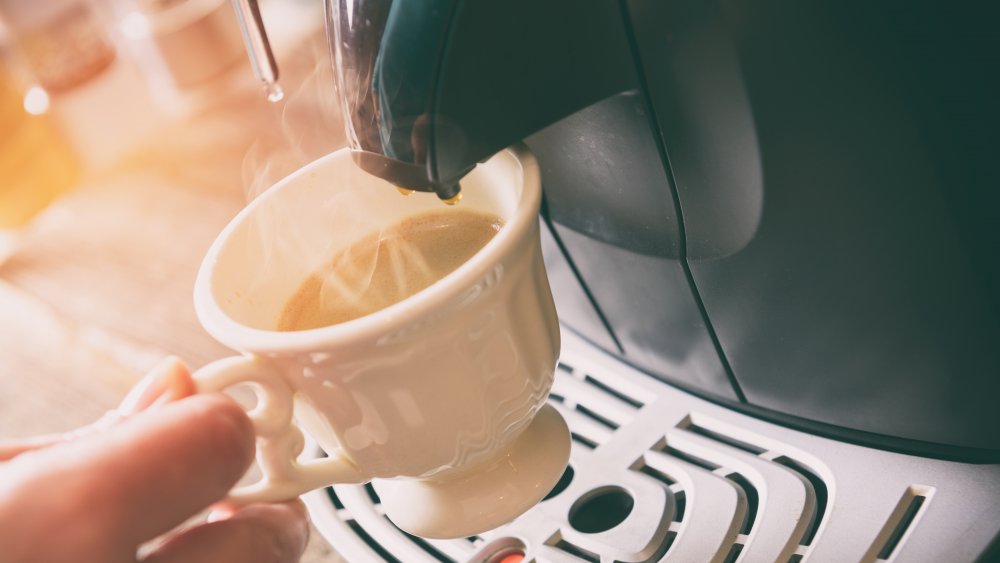Are Coffee Pods Really Bad For The Environment?
Those of us who love coffee also know our favorite beverage is shrouded in many myths, some of which Thrillist has helpfully compiled into a list to debunk. There are myths that say you need boiling water to brew a good cup of coffee (false — boiling water actually makes coffee bitter), that coffee is highly addictive (yes and no), that all coffee has the same amount of caffeine (no — it depends on the way your java is brewed). There is, however, one myth that engineers are prepared to debunk which didn't make it onto the list; that coffee pods are as bad for the environment as you think.
To be fair, coffee pods weren't always evil. For many, these pods were a lifesaver that allowed you to have a fresh cup — no matter what time of day it happened to be — and to enjoy good coffee wherever you were, without the fuss of having to get your percolator ready or shelling out wads of cash for a top of the line espresso machine; but then we began to examine the pods themselves and started asking what happened to these little capsules after we were finished with them. In 2014, Eco and Beyond says coffee pods made up 34 percent of all coffee sold — Nespresso sold 28 billion pods that year and Keurig produced 9.8 billion of its Green Mountain brand capsules. Nespresso alone made almost enough coffee pods to circle the world 26 times.
Coffee capsule brands say they are addressing the issue
The popularity of coffee capsules was thought to be a problem because, as environmentalists point out, they weren't nearly as easy to recycle as we might have originally believed. As a result, the spent pods were ending up in places they aren't meant to be — like rivers. John Hocevar, campaign director of Greenpeace USA said: "Coffee pods are one of the best examples of unnecessary single-use plastics that are polluting our planet. Many end up getting incinerated, dumping poison into our air, water and our soil" (via USA Today).
But Coffee Pods suggests that some are now challenging the "pods are pernicious" narrative by asking coffee drinkers to look at the overall life cycle impact of our coffee habit and not just to focus on the bits about the way coffee pods are being recycled, which manufacturers say is a problem they recognize and have either addressed or are on their way to fixing.
Espresso is a top environmental offender
Professor of chemical engineering Alf Hill studied every stage of coffee production, from the time coffee beans are grown to the way its grounds are disposed of. Hill also assessed the impact of coffee on ecosystems, climate change, and water; and found that instant coffee is the most environmentally friendly, and surprisingly coffee pods come in second. Filter and drip coffees come in third, but the biggest environmental offender is in fact traditional espresso. "The impact, such as greenhouse gas emissions, water and fertilizer use, mostly occurs where the coffee is grown," says Hill. "Capsules tend to need less coffee input to make a single drink and so their overall impact can be lower even though we see more waste when we throw them away." (via Wired).
Hill's research shows the biggest negative impact coffee makes is on the environment when it is grown. The second biggest hit comes from the energy used when you're brewing coffee. Life-cycle assessment studies expert Sebastien Humbert points out that "...if you are an irresponsible consumer, if your drip filter machine is very inefficient, if you leave it on, if you make more coffee than necessary, then you can make drip-filter coffee significantly worse than capsules." There's also the point that single serve coffee doesn't normally result in wasted coffee, while drip coffee more frequently does.
Coffee's negative impact comes from how it's grown and how it's prepared
The problem with coffee capsules isn't really with the capsules themselves — it's with the way they are being disposed of. "Coffee capsule companies claim their products are recyclable, and they are right. The problem is that they are not well collected, and their recycling is complicated," Piotr Barczak, a senior policy officer for waste with the European Environmental Bureau told Wired. If that is fixed, and the capsules are made fully recyclable, they would be better for the environment.
The study and its findings have been replicated in the US. Andrea Hicks, professor of the civil and engineering department at UW-Madison, says "The biggest environmental impact to coffee is growing coffee and the energy to brew coffee," because pot brewing often uses more energy than necessary. Full coffee pots are frequently kept in the machine and a heat plate runs continuously to keep coffee warm — which means energy is consumed at higher levels. Given this information, single serve coffee pods don't come out looking too much like the bad guys after all (via The Wisconsin Engineer).



